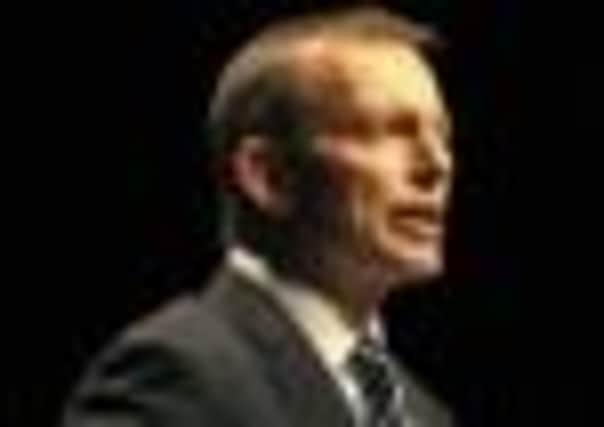Australian rules on dangerous import


In a curious statement last week, opposition leader Tony Abbott took aim at Labour prime minister Julia Gillard by declaring that, so long as he was in charge, his Liberal party would never resort to “imported” personnel.
“One thing which we never do in the coalition is import political techniques and political personnel from other countries. We just don’t believe in imported politics,” Abbott said. “We believe in a strong, home-grown policy. We believe in strong local candidates. That’s what you’ll always see from the coalition under my leadership. We will always speak with a strong Australian accent.”
Advertisement
Hide AdAdvertisement
Hide AdOutside observers would be forgiven for puzzling over Abbott’s opaque critique of his opponent’s style. Explanation came, however, from sources close to Abbott. It turned out that his comments were directed at a specific backroom figure within Gillard’s team, her senior communications director, John McTernan.
A former columnist with both Scotland on Sunday and The Scotsman and formerly political adviser to Tony Blair in Number 10, McTernan is not “home-grown”. He comes from Edinburgh. To underline the point, The Australian newspaper also reported last week that, despite having moved to Australia in 2011 to take up his post, McTernan continued to speak “with a broad accent”.
Scotland on Sunday contacted Abbott’s office to ask why Scots or other non-Australians were no longer welcome to work in the Australian political process.
However, the answer appears to lie in Abbott’s particular issues with McTernan who, The Australian reported, has become “controversial” within Canberra’s political village.
McTernan was hired by Gillard in 2011 on the urging of allies who saw a glaring need to add strategic direction and punch prior to the Australian elections later this year.
He has won backing from many Australian Labour figures for sharpening up the party’s messaging, but has attracted fierce criticism from opponents who have sought to pin the blame for Gillard’s aggressive attacks on opponents on McTernan’s influence. They culminated in Gillard’s famous 15-minute verbal assault in the Australian parliament last October when she labelled Abbott a “misogynist”. The speech has been downloaded on YouTube more than two million times and has won Gillard worldwide acclaim.
However, Abbott’s latest barb did not appear to have cut through. In response to Abbott’s attack last week, which also appeared in the Australian press, McTernan issued a two-word response: “Nae comment”.
It also prompted a search for non-Australian voices in Abbott’s own team, with the focus falling on his Belgian-born shadow assistant treasurer Mathias Cormann.
Advertisement
Hide AdAdvertisement
Hide AdCormann declared that his European friends “tell me that I speak with a very strong Australian accent these days”.
He added: “As a migrant I look forward to being part of an Abbott coalition government that will take a very Australian approach to Australian issues in an Australian way.”
Last night Trevor MacLaurin of the Australian Scottish Heritage Association said Abbot needed reminding that settlers, many of Scottish ancestry, had helped build Australia.
“I think that Mr Abbot must have forgotten that he himself was born in London, UK, and his arch-rival Julia Gillard was born in Barry near Cardiff, Wales,” he said.
“If he is trying to have a whinge about outsiders coming in influencing Australian politics he’s probably also forgotten that, for the last 200 years, the country itself has been majorly built by outsiders and people that have come from many other countries to settle here.”
“I know a great many people have a huge pride in their Scots heritage, quite often from the pioneers that came here in the early days of the settlement and forged a life for themselves. Overall, the majority of Australians realise the hard work a good many Scots have put into the country in the past and the present, many of whom [are] very proud of their Scots ancestry.”
Abbott was unavailable for comment.